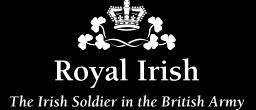Explore Listing
 On 12 April 1944, 9 Infantry Brigade was ordered by 3 Infantry Division to move on the following day to the area of Wildeshausen - Harpstedt (click on map below) and relieve the Division’s 8 Infantry Brigade as the latter was to lead the Division’s assault on the approaches to Bremen.
On 12 April 1944, 9 Infantry Brigade was ordered by 3 Infantry Division to move on the following day to the area of Wildeshausen - Harpstedt (click on map below) and relieve the Division’s 8 Infantry Brigade as the latter was to lead the Division’s assault on the approaches to Bremen.
When 2 RUR arrived in Palestine on 28 November 1937, its role was to uphold law and order and to deal with both Jew and Arab fairly and impartially. At that time, the Arab Revolt had begun. A British Royal Commission, in July 1937, had recommended the region be partitioned and, due to the Arab reaction, martial law was declared in September 1937.
The 3rd Division was now on the west bank of the River Rhine in positions between Emmerich and Rees with the 2nd Battalion The Royal Ulster Rifles deployed with a front of approximately 3,000 yards north-east of Kalcar and south-west of Rees.
Retreat to Dunkirk
 The 2nd Battalion The Royal Ulster Rifles spent the night of 19 May digging new defensive positions facing a canal and river line near Bossuyt, Belgium. At dawn on 20 May 1940, 2 RUR observed German troops on the opposite bank. Despite their presence the Battalion had a quiet day resting and improving the defence works.
The 2nd Battalion The Royal Ulster Rifles spent the night of 19 May digging new defensive positions facing a canal and river line near Bossuyt, Belgium. At dawn on 20 May 1940, 2 RUR observed German troops on the opposite bank. Despite their presence the Battalion had a quiet day resting and improving the defence works.
Two battalions, 2 UDR and 11 UDR, amalgamated to form the 2nd/11th (County Armagh) Battalion The Ulster Defence Regiment (2/11 UDR) with its Battalion Headquarters located in Armagh.
On 23 June, the 2/18th London Regiment (London Irish Rifles) entrained at Warminster and embarked at Southampton on the SS St Tudno and the SS Australind and sailed to le Havre where the Battalion disembarked on 24 June with a strength of 34 officers and 938 ORs.
On 23 June, the 2/18th London Regiment (London Irish Rifles) entrained at Warminster and embarked at Southampton on the SS St Tudno and the SS Australind to sail to le Havre where the Battalion disembarked on 24 June with a strength of 34 officers and 938 ORs.
Following the action at Fuentes d'Oñoro, Masséna's French Army of Portugal withdrew and the Marshal himself was ordered back to France. Wellington then marched south with Picton's 3rd and Houston's 7th Division to reinforce Beresford's Second Siege of Badajoz and counter the French army moving to relieve Badajoz.
After the Battle of Talavera, General Wellesley's Army retreated to the high mountainous positions south of the River Tagus. During this time the remnants of the 2nd Battalion of the 83rd Regiment, commanded by Major Napper, suffered shortages of rations, including no bread, and this weakened the survivors just when fitness and stamina were required to match the arduous terrain and tasks.
Having moved from Seville on transfer to Wellington's Peninsular Army on 1 October 1812, the 2nd Battalion of the 87th Regiment joined the 4th Division at Aranjuez on 25 October as Wellington advanced on Madrid.





